If you’re reading this newsletter, you’re probably kind of a book nerd. You read a lot as a kid, and you experience the world through a literary lens even if you don’t read as many books now as you wish you could. Books are part of who you are.
I am 100% book nerd, but I wish more of my fellow book nerds also played video games. It feels like there’s less overlap between video game nerds and book nerds than there should be. I’m writing this even though Substack’s impossible-to-hide metrics have shown me that my video game-related content gets significantly less engagement than anything else I write here, and I’ve probably already lost a solid half of my readers. People even seem kind of proud of not being into video games, as though that made them a more serious person.
It’s really unfortunate, because there are video games that are intensely, profoundly literary! They are the kind of art that will deeply move you and stay with you. They will improve your craft.
I think a lot about this passage in Nana Kwame Adjei-Brenyah’s essay “This Kind of Animal” about the 2019 game Disco Elysium in the essay compilation Critical Hits: Writers Playing Video Games:
I’m not here to tell you to play the game. I’m here to say that Disco Elysium is a magnificent literary experience. Literary is a slippery and sometimes problematic word, but in this context I mean: via the precise use of language, it changes the reader. It makes you grow, gives you a new way of looking at the world, which is a mirror of all of us together, and it asks you really, truly, honestly, Who are you?
Adjei-Brenyah wrote Chain-Gang All-Stars, one of my favorite books of the past few years, and I would definitely consider him an authority on magnificent literary experiences. Listen to him, even if I haven’t convinced you yet.
There are a lot of video games I could write about that have moved me to think more deeply as a scholar and writer. I truly believe every classicist and medieval historian should play Pentiment, a 2022 game about a 16th century artist training to illuminate manuscripts and also solving a murder mystery that kind of has to do with Christian absorption of pagan mythology. Also, the characters talk in different fonts depending on their level and type of education. The whole game is a masterpiece. Relatively early on there’s a scene where the protagonist is debating a librarian nun about the role of women in the Aeneid WITHIN A MANUSCRIPT OF THE AENEID, and I remember thinking, how on earth did this game ever get made??
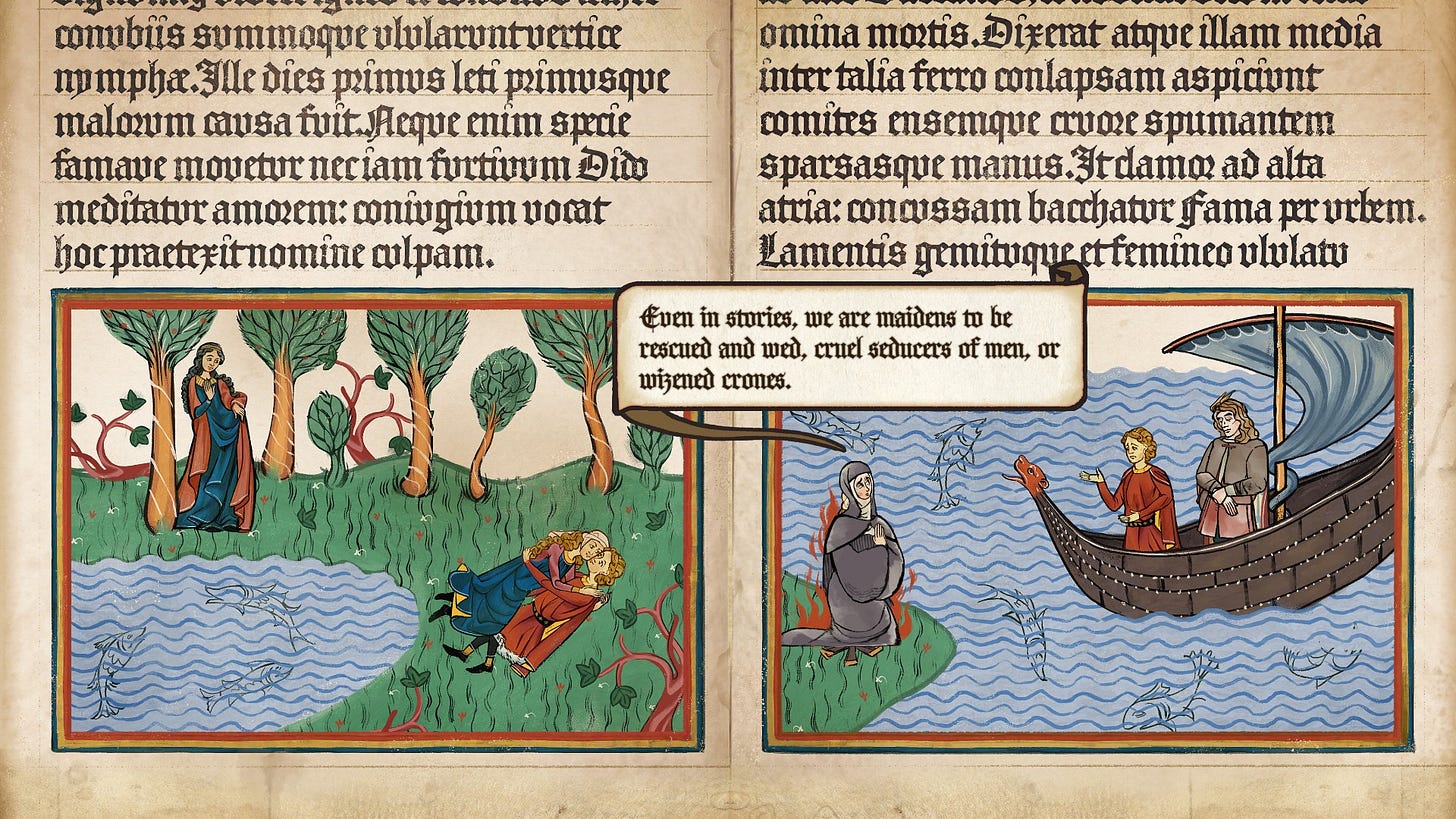
I’d also love to discuss 2023’s The Cosmic Wheel Sisterhood, a visual novel I played recently where you’re a witch who makes a pact with a demon and designs her own oracle deck. It’s absolute catnip for Tarot lovers. And at one point you have the chance to work with another witch who is something called a “cosmic poet” and write a poem based on the cards you draw in a reading, and I swear, the poem I wrote through procedural generation feels like a magic spell.
But all three of the games I’ve mentioned so far are text-heavy experiences. The game I really want to tell you about is Blue Prince, which came out just a few weeks ago and is available on Steam, Xbox, and Playstation. Light spoilers follow, but I don’t want to share too much because this is really a game where the magic comes from discovery.
I fell in love with Blue Prince at first sight. Six months ago, my partner, a game developer, was watching a YouTube video on games that make you get lost, and I caught a glimpse of his screen and asked him, “What game is THAT?” Distressingly, it turned out to be footage of a game that was still a ways out from being released. The demo wasn’t even available! But I could tell just from a glimpse how special it was.
In Blue Prince, you play as Simon, who recently inherited a manor house from his eccentric great-uncle. The catch is that you only get to keep the inheritance if you find the 46th room in the 45-room house. I loved this conceit immediately.
The game has no easily categorizable genre. Essentially, you’re building a version of the Winchester Mystery House over and over again, while also trying to solve escape room-style puzzles and solve the bigger, deeper mystery of the disappearance of your mother, a children’s book author who was also maybe a political dissident. It feels like The Westing Game in video game format, if it was also a jigsaw puzzle.
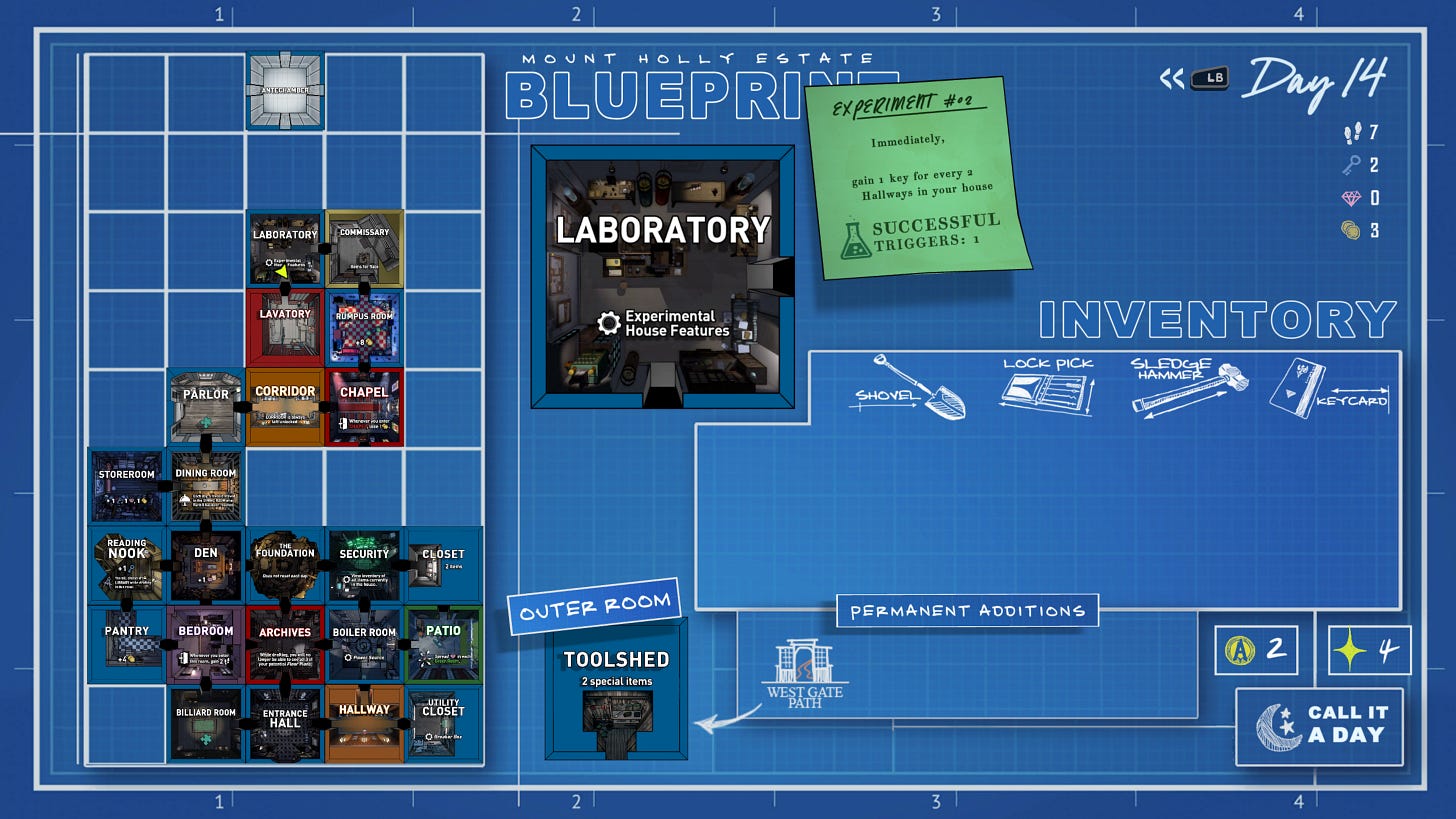
Compared to the other games I’ve mentioned here, there’s not a lot of text in Blue Prince. But the text is incredibly high-impact. Early on, you discover a book written by the protagonist’s mother called Red Prince. It works remarkably well as a children’s book while also giving you a bit of a metaphorical map for how to approach the bigger game and its approach to text and color.
Then, a little deeper into the game, if you choose to draft a rarer room, you find the rejection slip from a publisher for the original version of Red Prince, which mentions that the ending is too obviously a political allegory. So you realize that the first version you read is the new, cleaned-up version. At that point, I became obsessed with finding the original manuscript.
How obsessed? I have a whole-ass notebook just dedicated to my 30+ pages of notes on this game:
All of the most recent photos in my iPhoto library are just pictures of things that might be clues. It’s turned me into a full-on conspiracy theorist. Yesterday my partner joked “Maybe the carpets have a secret message woven into them!” and honestly, I can’t rule it out. I immediately took pictures of the carpets to add to my growing photo library of every piece of text I’ve come across.
But the game isn’t just literary in its approach to the books within the game (although I strongly suggest that you read every letter and book you interact with and buy out the bookshop ASAP). It’s also a masterclass in environmental world-building. It takes place in an imaginary kingdom, and piecing together the politics of that kingdom is a gradual, subtle joy. Just look at this heavily redacted introduction from a book about the world’s history:
It almost reminds me a bit of one of
’s blackout poems. In a world where many games begin by hitting you over the head with a massive infodump of backstory and lore, I found Blue Prince’s approach to world-building soothing and beautiful.This is a game that really trusts its players to figure it out in a way that many aren’t brave enough to do. That’s a lesson many writers could learn, too.
Writers are often told “show, don’t tell.” But the best video games go one step further and artfully conceal, making the reader work for their knowledge.
IGN’s review of the game begins with, “I’m not entirely convinced Dogubomb didn’t develop Blue Prince as a personal gift to me, specifically.” I felt the same. And that made me think: that’s the dream! To create a piece of art that’s so weird and specific that people out there feel like you made it especially as a gift for them! Isn’t that why we write, even though it hurts sometimes?
I can’t recommend enough that you stop doomscrolling and play this game. You will learn so much. I can’t guarantee that it will make you grow and give you a new way of looking at the world — ultimately, that’s on you and what you bring to the experience. But I do know that it has a lot to teach writers about how to construct a world that your reader will find it a delight to inhabit and discover.
If you like reading literary approaches to video games, visit the “video game” section of my archives here!


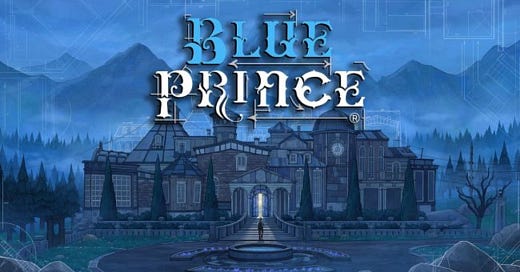



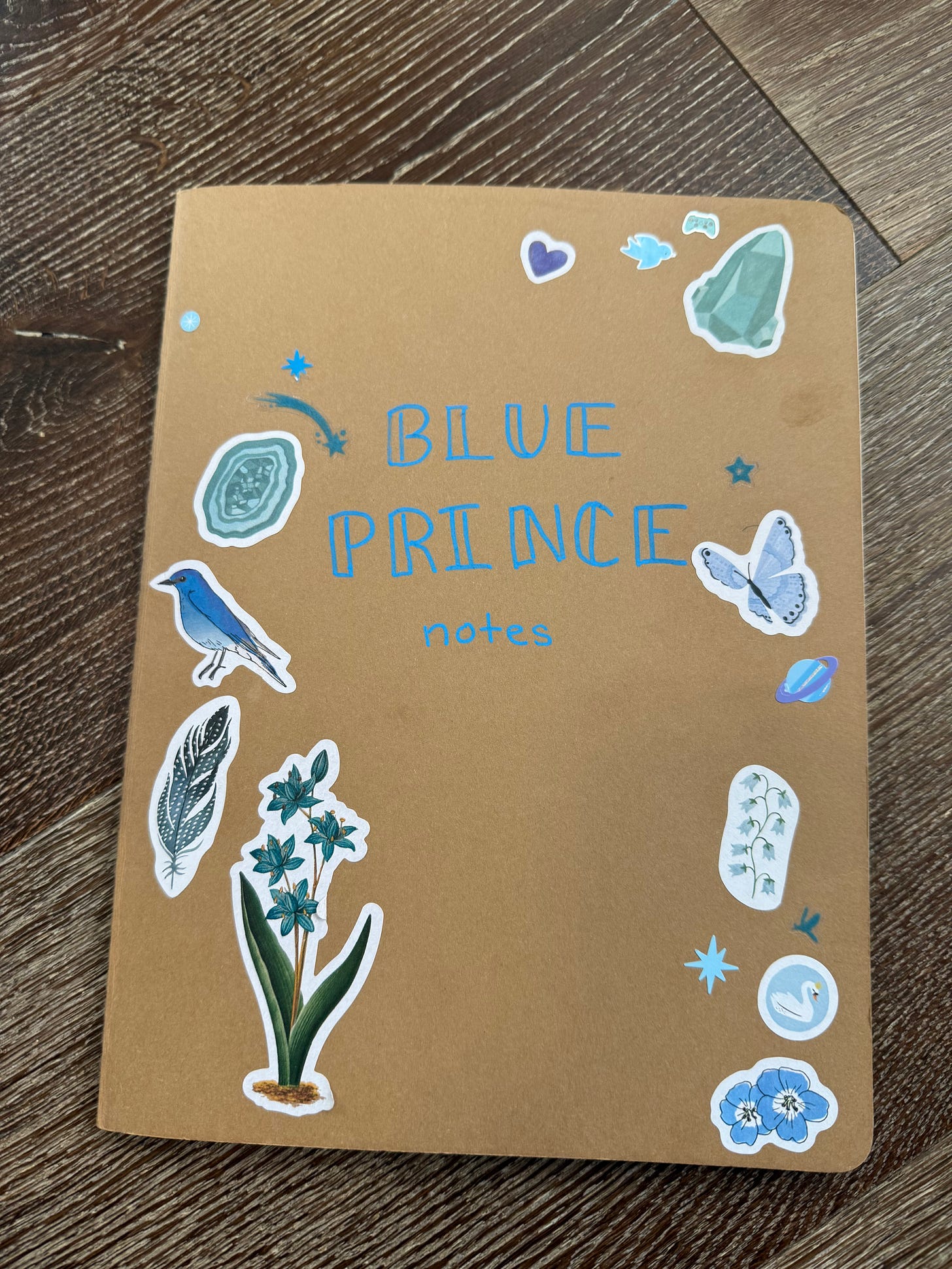
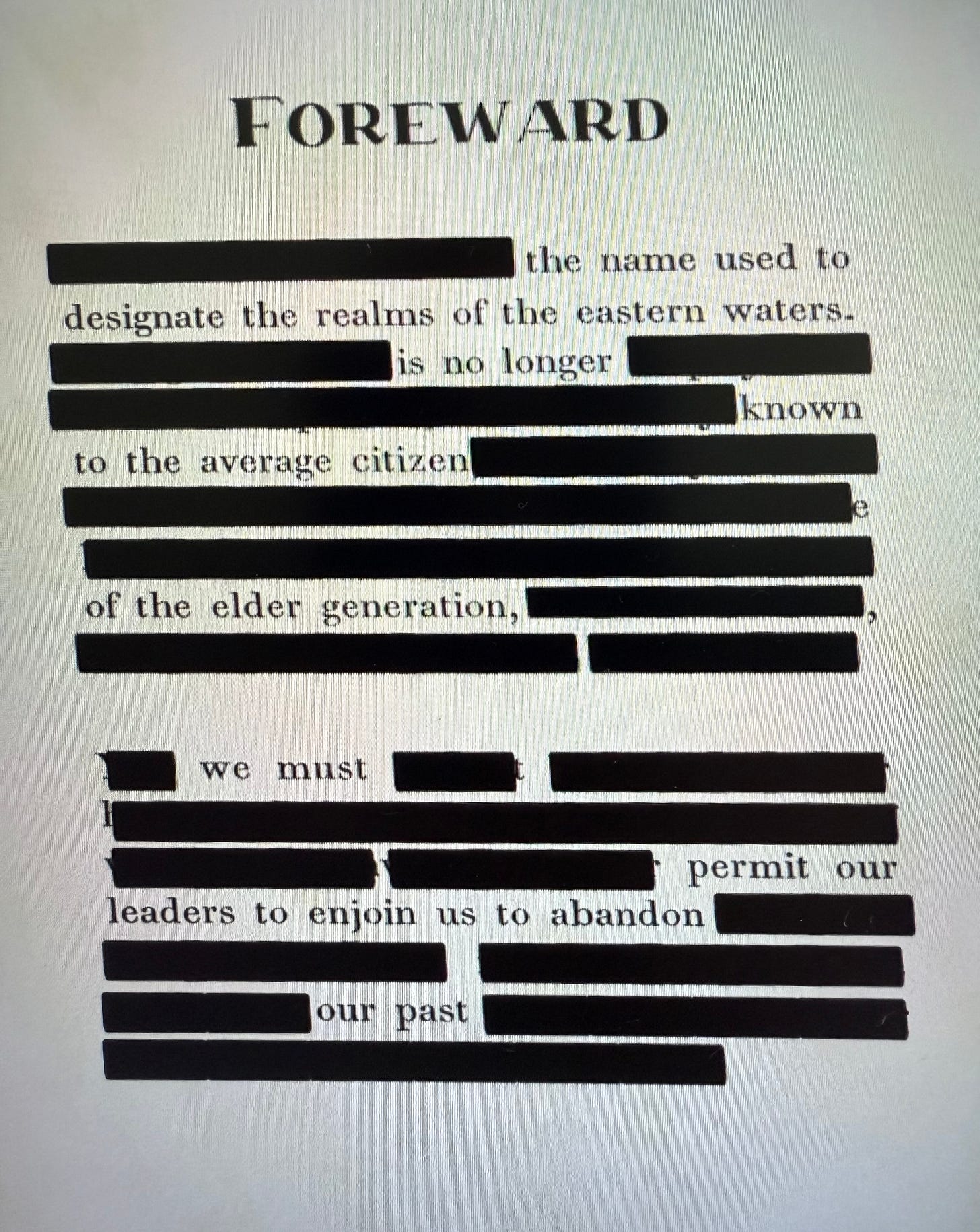
If you haven't played Weather Factory's Book of Hours yet, and you love cosmic horror with tons of backstory, then, um, I guess you should play it soon?
On the one hand, this sounds a lot like Myst. On the other hand, I approached Myst thinking I was a decent video game player and ended up wandering for hours not figuring out anything. When I saw some of the — was it brothers’? — videos on YouTube, I was shocked, I could not get ANYWHERE. So the description of this game is deeply intimidating.
OTOH, I’m thinking Pentiment sounds fabulous.